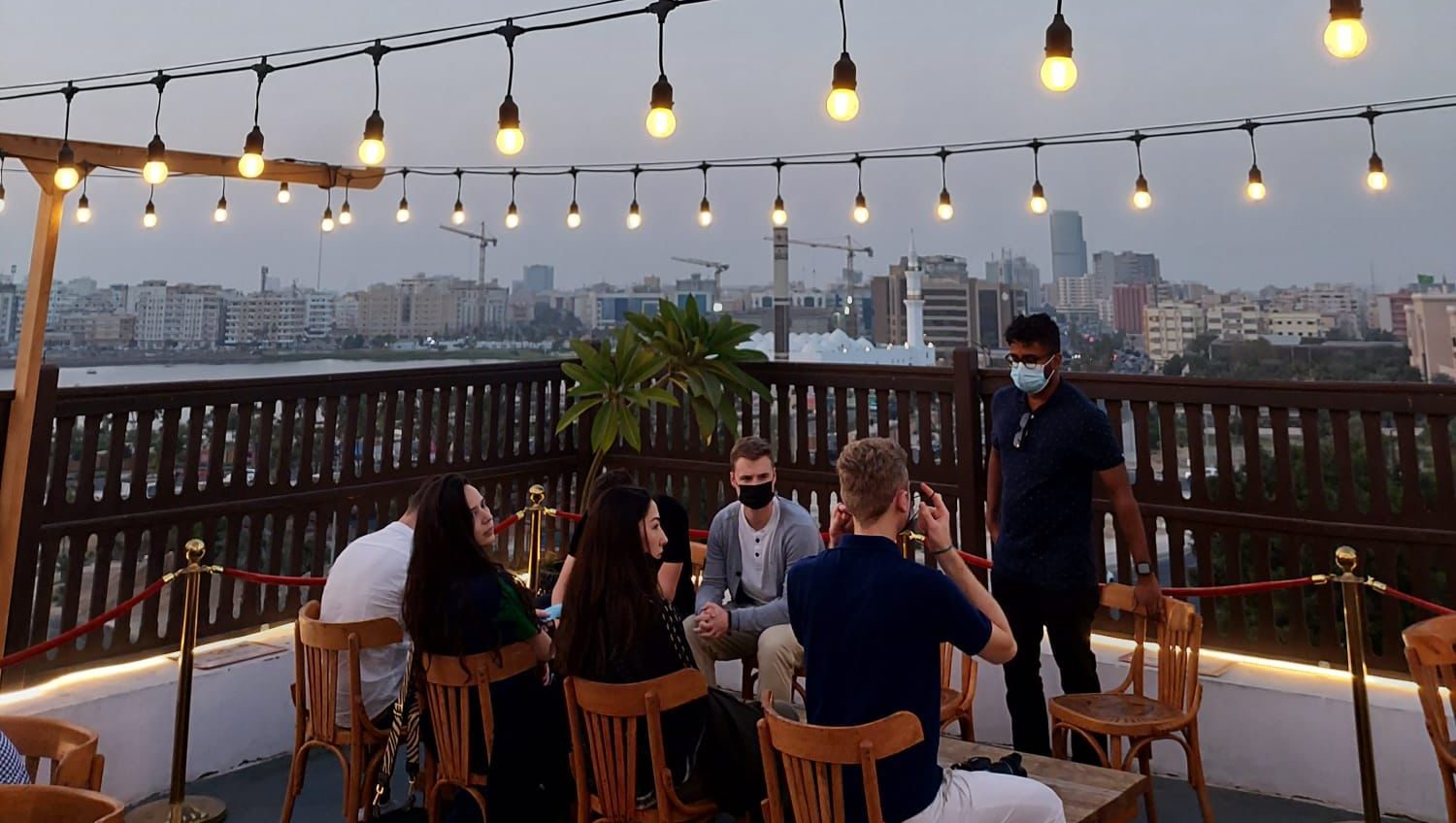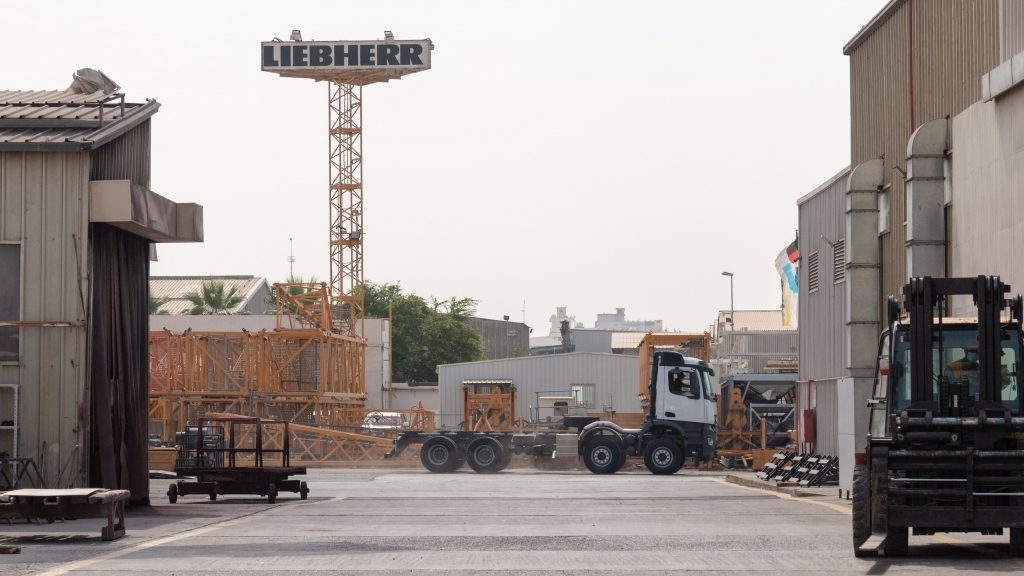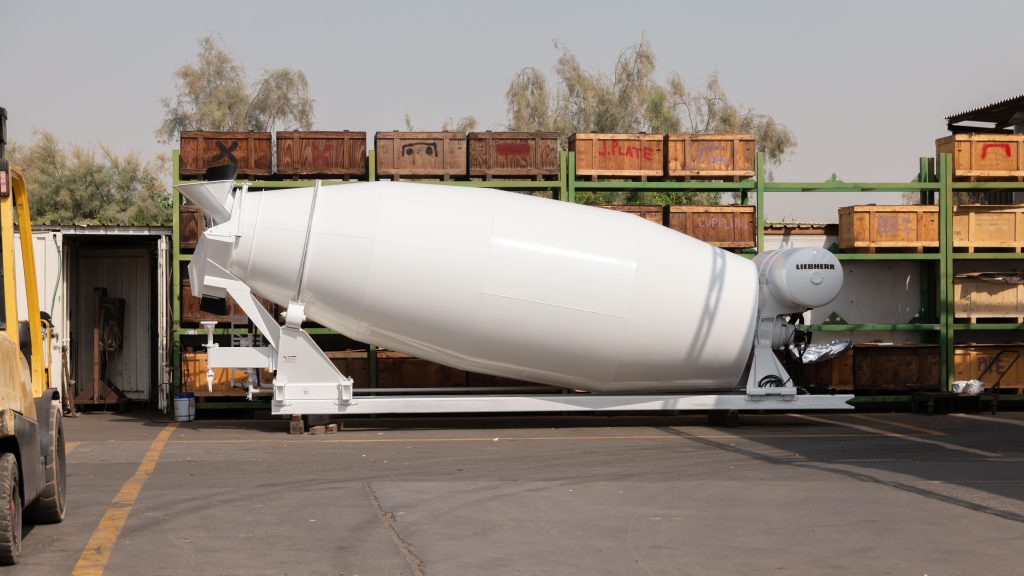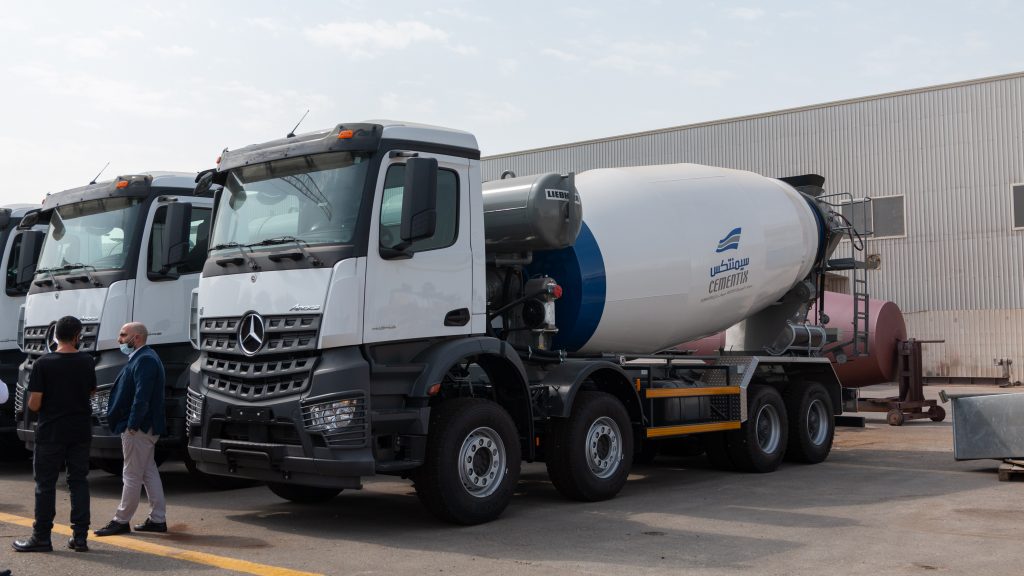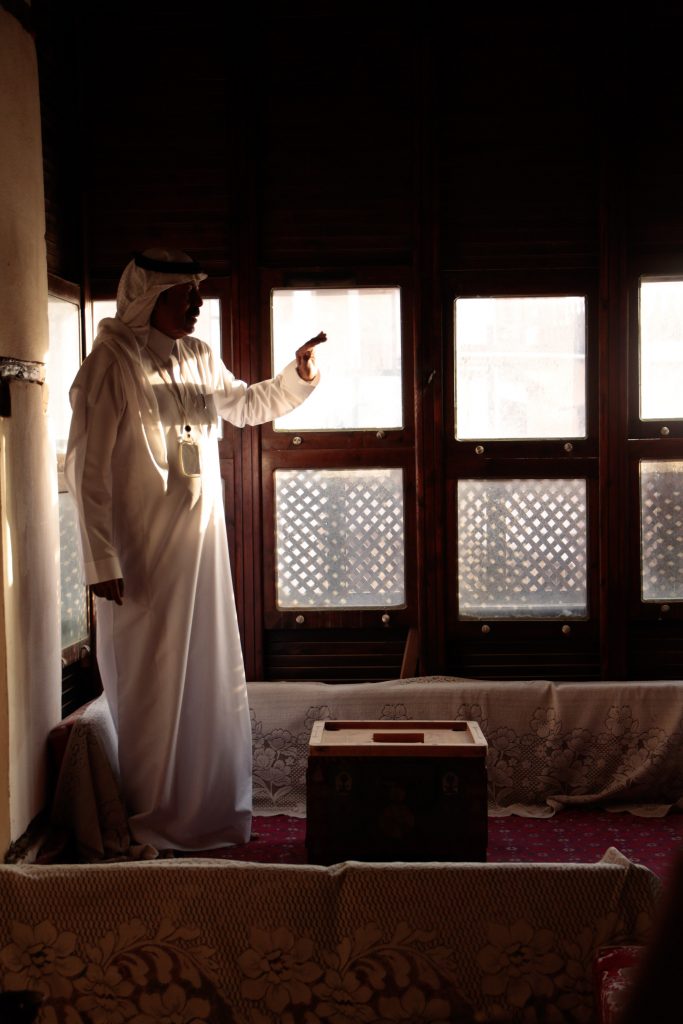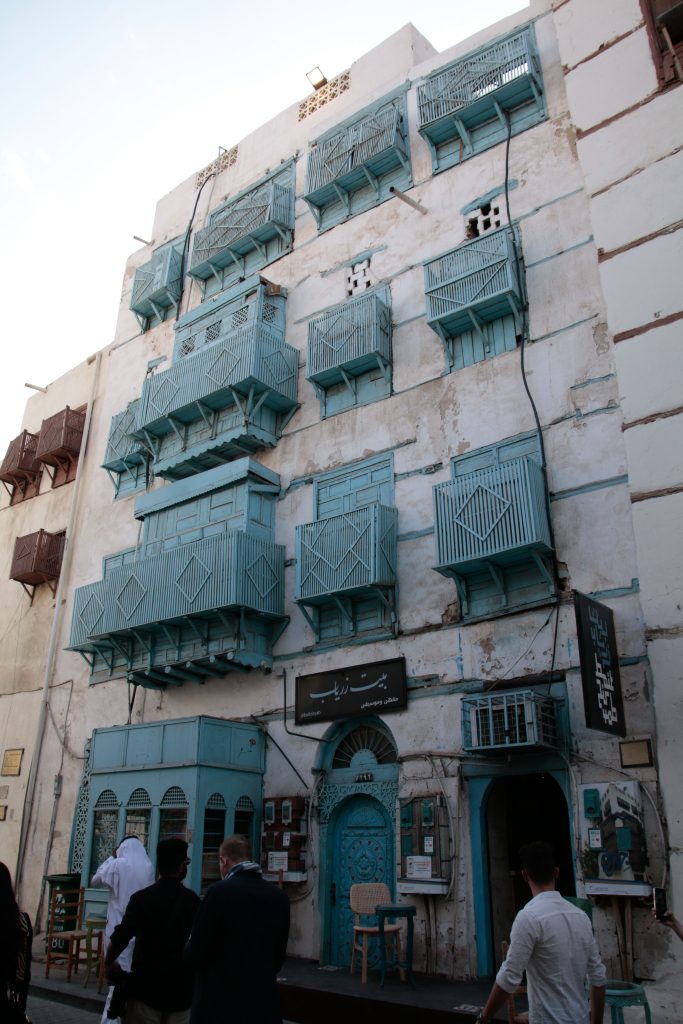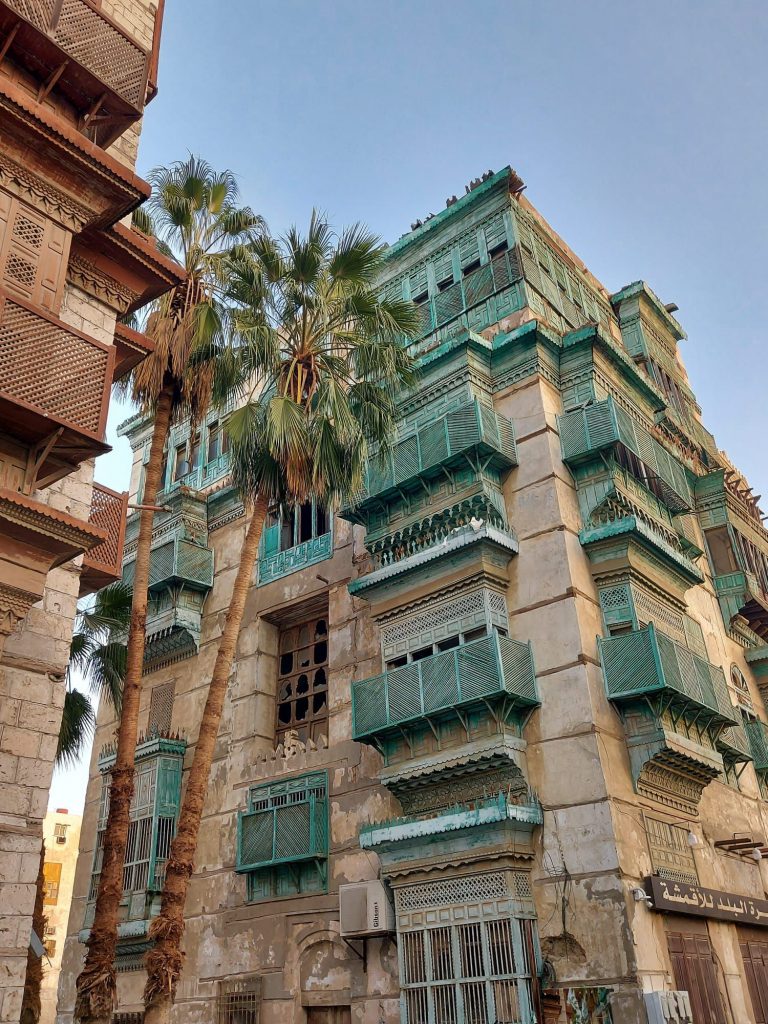We started our day with a visit to the NAI assembly plant, a joint venture between Mercedes Benz Trucks and E.A. Juffali & Brothers, set up to assemble Mercedes commercial vehicles (trucks) in Saudi Arabia. The visit was very insightful. Watching how a truck is put together in person makes you realize and appreciate the complexity of vehicle production. In this factory, 2 and 3 axle trucks are being manufactured on the same production line, for distribution throughout the Kingdom. Most of the truck parts, including the fully assembled and painted cabins, and the motor, come directly from Germany to guarantee the high quality Mercedes stands for. In Jeddah, all these parts are assembled into the final product – a Mercedes Benz truck.
We were given the opportunity to have a closer look at each step of the assembly line. At the beginning of the line the chassis, a large metal frame around which the other parts are assembled, is put upside down to enable the workers to assemble first parts more easily. While the workers’ education would allow them to work in any step of the production, they mostly specialize in one step. Later on in the process, it is flipped back, just before the engine is lowered into the chassis. With each step, the truck becomes more and more recognizable until, in the end, a shiny new Mercedes Benz truck (weighing up to 10 tons!), drives out of the building. At this production site, 8-10 vehicles are put together on a daily basis, who then are parked outside among the 100+ others, waiting to be delivered.
The production site is of very high quality and the workers seem to have a good work environment. However, not being equipped with air-conditioning, the temperature at the production line can rise even above that outside, which already can reach more than 50 degrees. After mentioning that such heat seems unbearable to work in, we were ensured the company is building a new production site outside the city, with air-conditioning in all areas of the factory.
During our stay, we passed by a picture of the factory taken in 1980. In it, the factory can be seen located a bit outside the city. Comparing this to our experience, visiting this same factory now located well inside the city, the tremendous growth of Jeddah over the past 40 years became all the more visible.
We ended the visit with some finger food, once again proving Saudi hospitality to be exceptional.
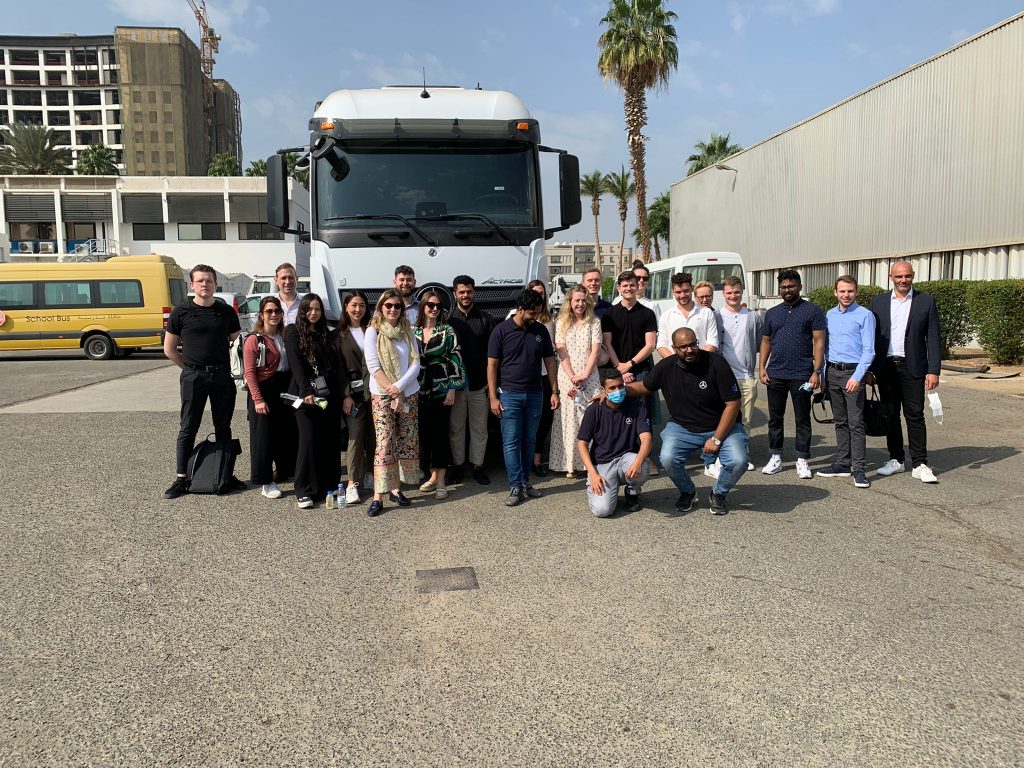
The next company we visited was Liebherr, a company that manufactures construction machines such as cranes and concrete mixers. The company works with assembly lines and is represented in 3 main cities of the country: Riyadh, Jeddah, and Daman. They are leading the Saudi Market, working together with major companies such as Saudi Aramco.
Similar to Mercedes, Liebherr too imports parts form Germany, especially in form of steel sheets which, on-site, are bent and welded together to form the concrete mixing drums.
Particularly interesting to hear was that due to the intense physical labor, working during the day during the fasting month of Ramadan, is not possible. During this time, workers simply lack the energy during the day. For this reason, Liebherr shifts working hours from day to night, to start after dinner and end in the early next morning. During the warmest season, extended breaks are introduced to avoid the extreme sun at noon. Like Mercedes, the factory lacks air-conditioning, relying only on fans. Also like Mercedes, they plan on moving to a new factory that is air-conditioned to improve working conditions by keeping temperatures below 30°.
Looking at their final product we saw a cluster at work, as the concrete mixers were attached to the same Mercedes Benz trucks we had seen being assembled the hours before – right around the corner.
Due to a very tight schedule, we grabbed some take-away and ate in the bus, driving to the next company.
Upon arriving at our third destination, Swiss Hospitality Company, we were offered some small bites and were encouraged to explore the office. Afterwards, the CEO and Founder of the company started off with a presentation on Saudi Arabia’s most impressive plans under the country’s “Vision 2030”. Plans reach from building luxurious vacation areas, a new financial hub, to an entire new city operating on green energy. All of these ideas are supposed to create numerous jobs in the hospitality sector. The presentation outlined the tremendous opportunities Saudi faces and underlined the importance of the country for the future tourism industry.
He proceeded to explain how Swiss Hospitality Company fits into this environment working in consulting, and scholarship administration. The company facilitates Saudi students to receive world-class education, for example by a renowned Swiss hospitality school, in order to transfer knowledge to and apply it in the Kingdom. Due to their integral contribution to the Vision 2030, the company is funded by the state.
Afterwards, the founder of nommas, a firm specialized in computer vision took over the stage, explaining how advanced computer vision can be used in businesses. Using AI, concepts of items can be “learned” and used, e.g. to sort items on a fast moving conveyor belt. This could be of particular interest in the recycling industry, where huge amounts of materials and items need to be sorted, and in quality checks, where visual inspection systems can be automatized.
We ended the day with a visit to Jeddah’s old town. Participating in a guided tour we were baffled by the beauty of the old buildings, made of coral stone and wood. The most striking element of traditional architecture are the rūshān, wooden balconies that allow for fresh air and a view to the outside, while keeping people outside from seeing in.
Later, our tour guide led us into a museum, furnished to replicate how people of Jeddah lived in the past. After this great experience, we went to a rooftop bar in the old-town to enjoy the sunset together.
